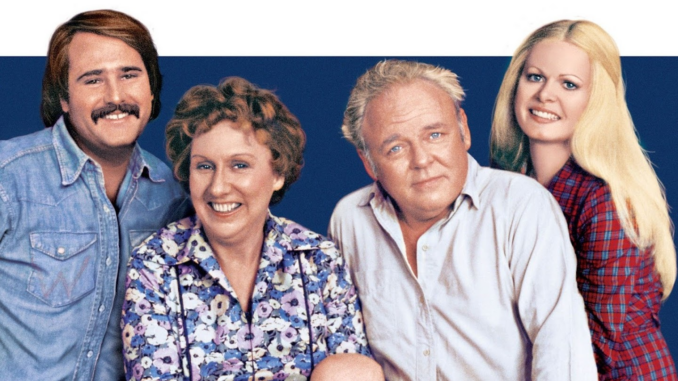
Norman Lear is a name that resonates with anyone who has ever turned on a television. As the mastermind behind groundbreaking shows like All in the Family, Lear didn’t just create entertainment; he sparked conversations that shaped American culture. His ability to blend humor with social commentary has left an indelible mark on the television landscape. In this article, we’ll dive deep into the life and career of Norman Lear, exploring how he transformed television and why his legacy endures today.
The Early Years of Norman Lear
A Humble Beginning
Born on July 27, 1922, in New Haven, Connecticut, Norman Lear was raised in a modest Jewish family. His father was a tailor, and from an early age, Lear was exposed to the struggles of everyday life. This background would later influence his work, as he sought to portray authentic stories and characters on screen.
Military Service and its Impact
Lear served in the U.S. Army during World War II, an experience that significantly shaped his worldview. His time in the military exposed him to different cultures and social issues, fueling his desire to create meaningful content that resonated with the American public.
The Birth of a Television Legend
Transitioning to Television
After the war, Lear embarked on a career in television, initially writing for various shows. However, it was in the late 1960s that he began to carve out his niche as a producer. He was determined to create shows that addressed real societal issues rather than the escapist fare that dominated the airwaves.
Creating All in the Family
In 1971, Lear premiered All in the Family, a sitcom that would change the face of television forever. The show centered around the Bunker family, particularly the bigoted and lovable Archie Bunker, played by Carroll O’Connor. By tackling topics like racism, sexism, and class struggle, Lear pushed the boundaries of what television could address.
The Impact of All in the Family
A Show That Sparked Conversations
All in the Family was revolutionary in its portrayal of social issues. Viewers found themselves laughing at the absurdity of Archie’s prejudices while simultaneously grappling with the real-life implications of those views. The show became a platform for discussing controversial topics, making it a cultural phenomenon.
Cultural Reflection and Influence
The show didn’t just entertain; it mirrored the societal tensions of the 1970s. It became a touchstone for discussions about race, gender, and class, influencing a generation of viewers and writers alike. The legacy of All in the Family can still be seen in today’s television, where shows continue to tackle important social issues.
Norman Lear’s Other Groundbreaking Shows
Expanding the Television Landscape
Following the success of All in the Family, Lear continued to create impactful content. He produced a series of other beloved shows, including The Jeffersons, Maude, and Good Times. Each of these series addressed critical social issues, from racial inequality to women’s rights, all while maintaining a comedic edge.
Innovative Storytelling
Lear’s approach to storytelling was innovative. He understood the power of humor to engage audiences while also prompting them to think critically about societal issues. This unique blend of comedy and commentary became his trademark, setting a high standard for future television creators.
The Legacy of Norman Lear
A Lasting Influence on Television
Norman Lear’s influence on television is immeasurable. He opened doors for diverse storytelling and encouraged creators to explore complex social themes. His commitment to authenticity and representation has inspired countless writers and producers to follow in his footsteps.
Recognition and Awards
Throughout his career, Lear has received numerous accolades, including multiple Emmy Awards and a Kennedy Center Honor. His work has been recognized not only for its entertainment value but also for its cultural significance. Lear’s contributions to television have solidified his status as a true pioneer in the industry.
The Evolution of Comedy in Television
Changing the Face of Sitcoms
Lear’s impact on comedy cannot be overstated. He transformed the sitcom format, introducing a more realistic style of humor that tackled serious issues head-on. This evolution allowed for deeper character development and more nuanced storytelling, paving the way for future sitcoms to emulate.
Creating Space for Diverse Voices
Lear’s success also led to greater representation in television. By highlighting the experiences of marginalized communities, he created space for diverse voices to be heard. This shift has been crucial in shaping the television landscape we see today.
Continuing the Conversation
Norman Lear’s Ongoing Influence
Even in his later years, Lear remains an influential figure in the entertainment industry. He continues to advocate for social change through various projects, including the reboot of One Day at a Time, which reflects his commitment to addressing contemporary issues.
A Role Model for Future Generations
Lear’s dedication to storytelling that matters serves as an inspiration for aspiring writers and producers. He has shown that television can be a powerful medium for social change, encouraging future generations to push boundaries and explore important topics.
Conclusion: Celebrating a Television Visionary
Norman Lear’s contributions to television have transformed the medium into a powerful platform for social commentary and change. Through his groundbreaking shows, particularly All in the Family, Lear has left a lasting legacy that continues to resonate today. As we celebrate his achievements, we recognize the importance of storytelling that reflects the complexities of our society and the role that television can play in shaping our understanding of the world.
